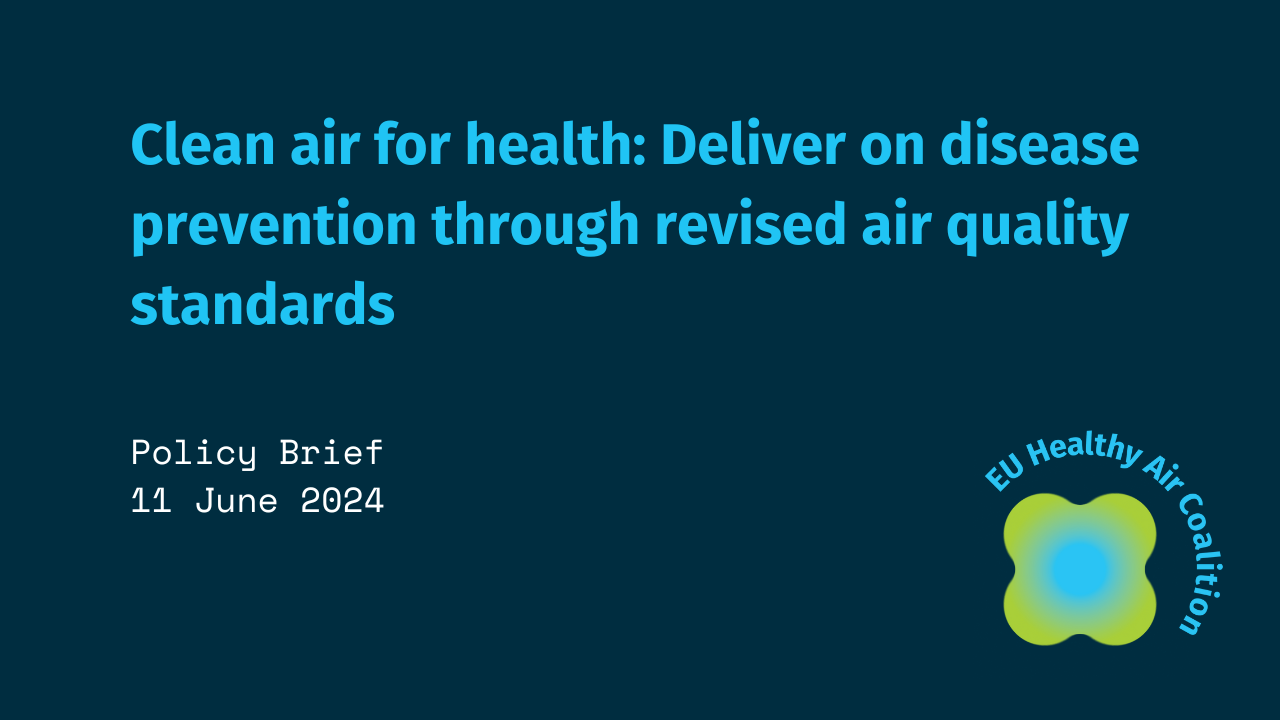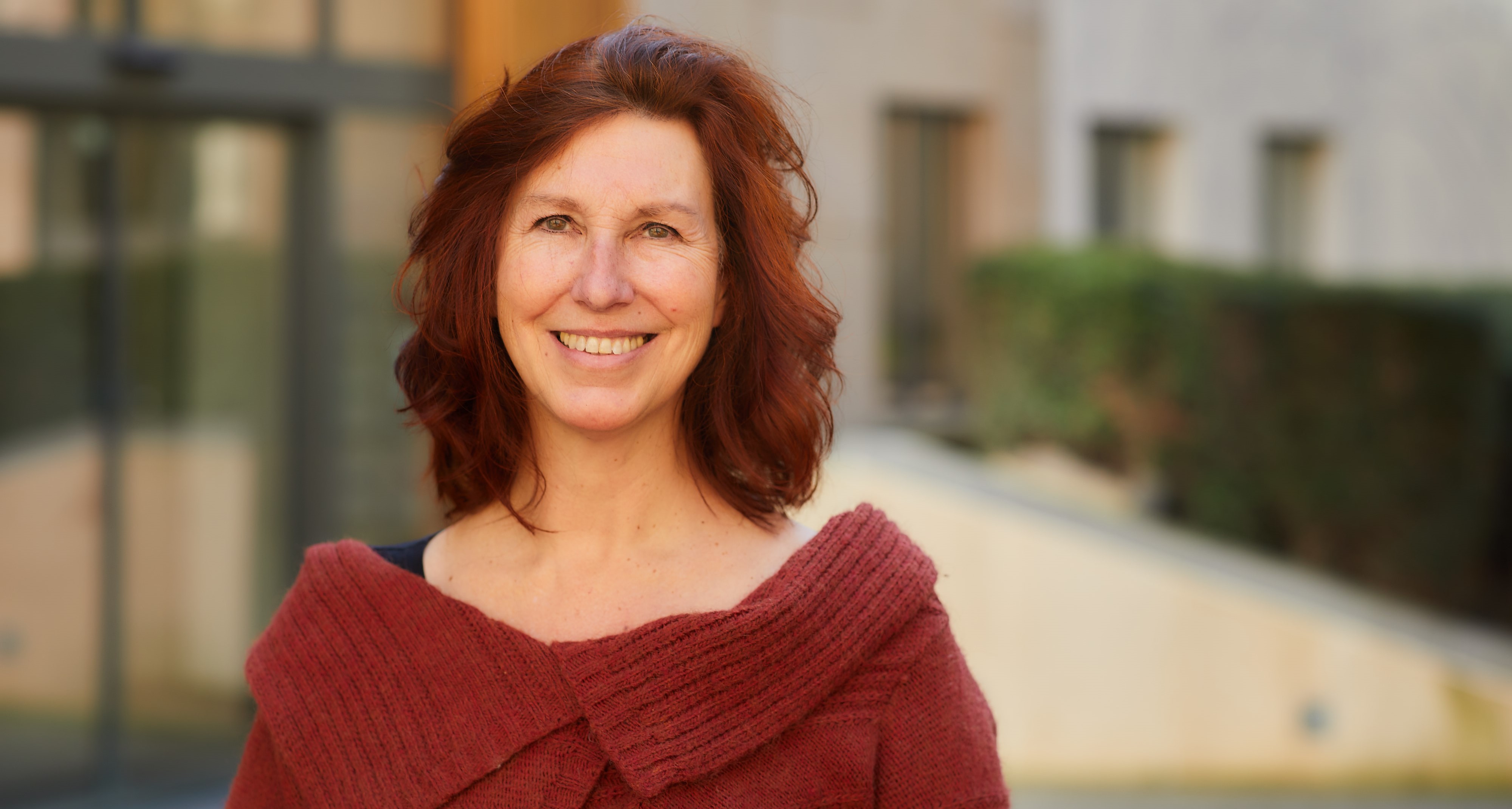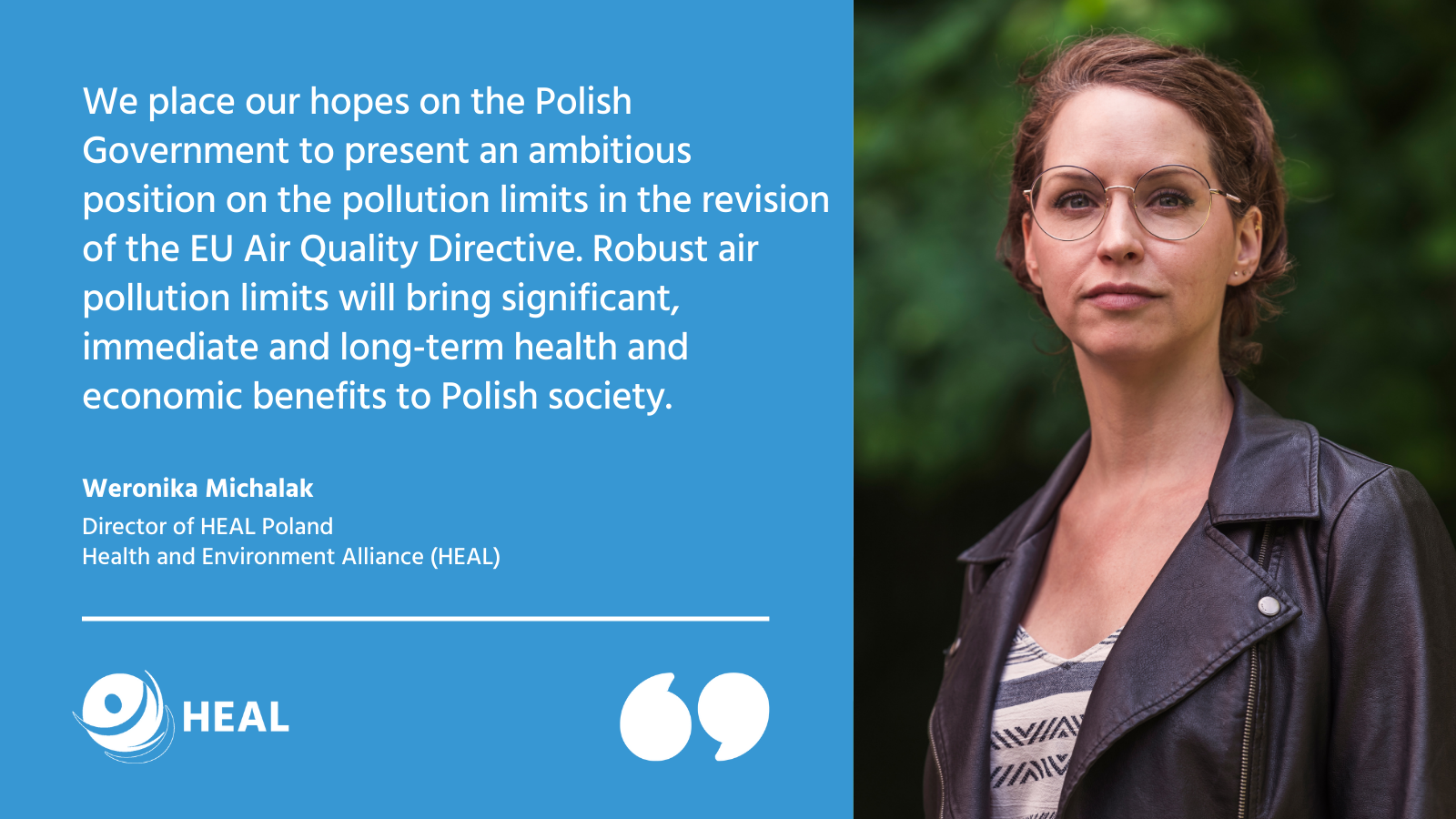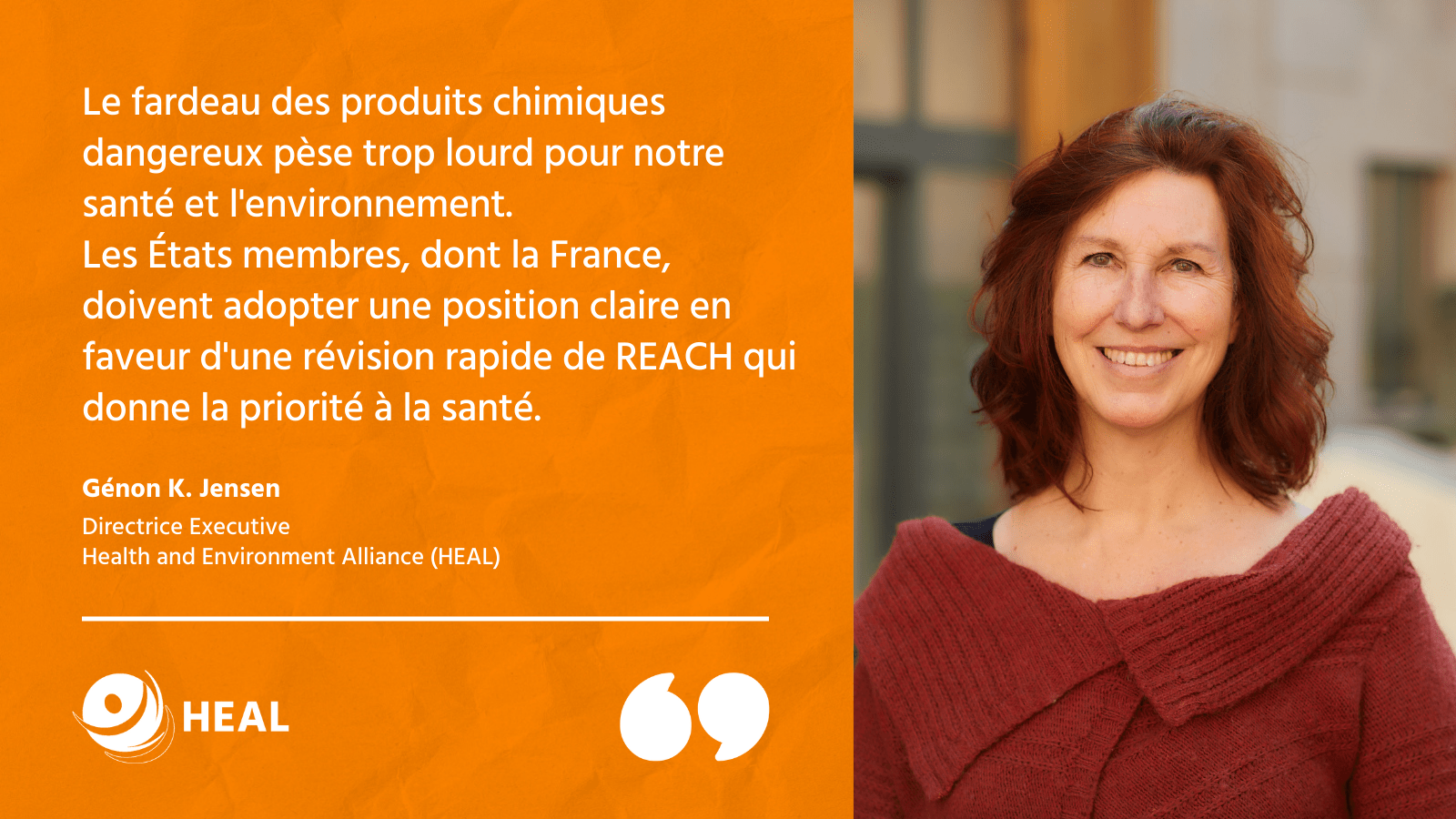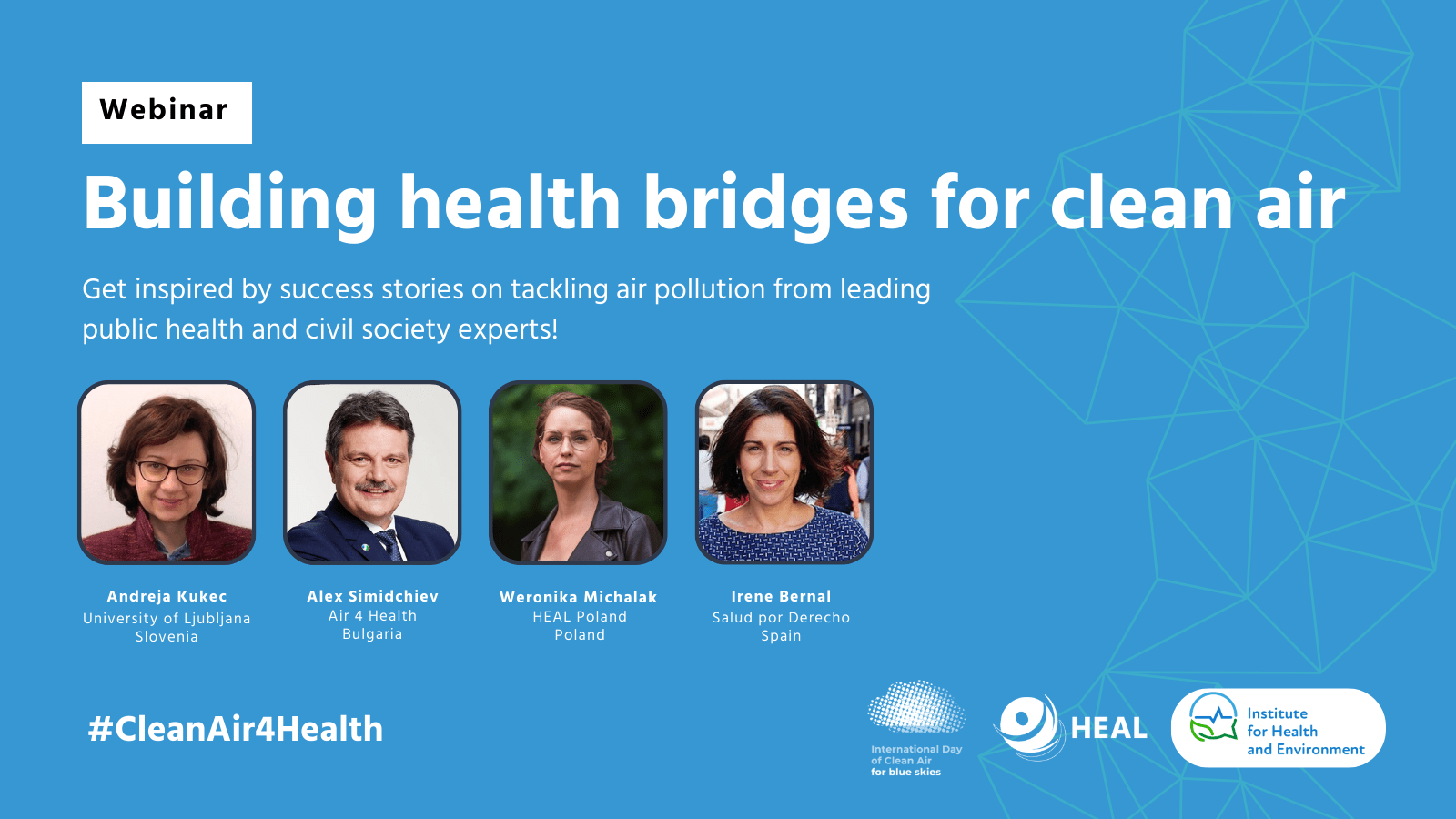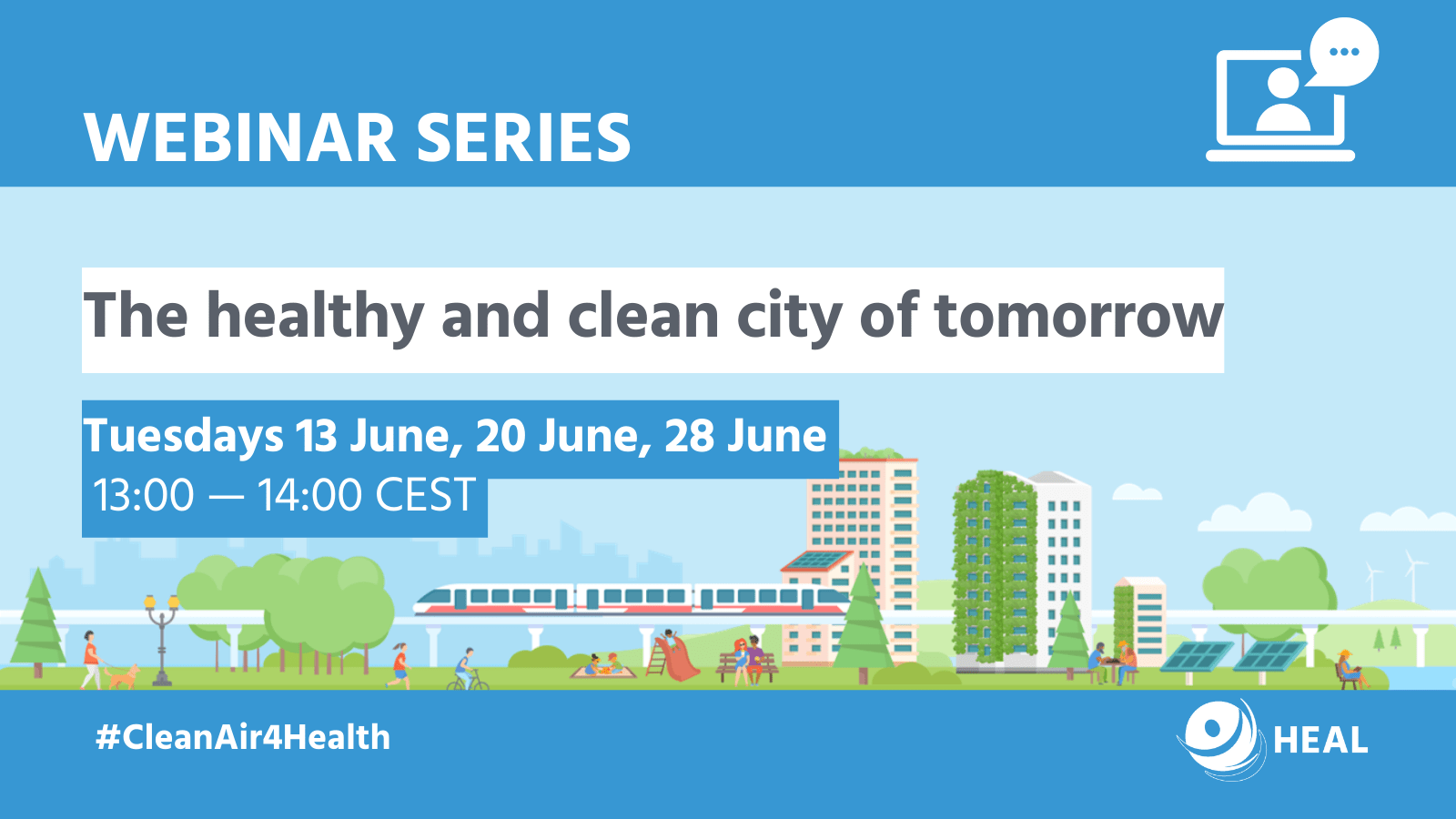HEAL advocates for policies to benefit peoples’ health and the environment
Stay up to date, read HEAL’s latest news, press releases, letters, briefings, policy papers, scientific statements and many other publications.
If you are a media representative and would like to receive our press notifications, sign up here.
Press contact: Nea Pakarinen nea@env-health.org
Letter to the President of the European Commission on protecting people’s health against climate change, pollution and biodiversity loss
1st August 2024
HEAL calls on European Commission President Ursula von der Leyen to commit to protecting people’s health from the triple crisis during her second term in a letter. HEAL urges her to safeguard and strengthen the EU climate and environmental acquis for better health, and accelerate on the zero pollution path, including for the foreseen reform of the EU chemicals law REACH.
Green 10 letter to the President of the European Parliament calling to address the climate, biodiversity and pollution emergency
26th July 2024
The Green 10 coalition, which HEAL is a part of, encourages the President of the European Parliament Roberta Metsola upon her re-election to put the climate, biodiversity and pollution emergency at the forefront of her tenure.
Green 10 letter to the President of the European Commission on upholding and scaling up Green Deal commitments
26th July 2024
The Green 10 coalition, which HEAL is a part of, encourages the EU Commission President to prioritize and scale up the Green Deal commitments towards zero pollution, thriving nature and health.
Letter: Civil society groups call on UNEP and the WHO to protect scientific integrity of scientific report on endocrine disruptors
17th July 2024
A number of NGOs sent a letter to UNEP and the WHO calling for a strict policy on conflicts of interest in the update process for the state-of-the-science report on endocrine disrupting chemicals (EDCs).
Letter: Protecting people’s health against climate, environmental threats and reducing health economic cost
16th July 2024
HEAL has sent a letter to Members of the European Parliament urging them to commit to protecting health against climate, environmental threats in the next five years, in their positions on legislative proposals as well as in all budgetary and financial decisions.
Building Polish doctors’ capacity on environment, climate and health
12th July 2024
In collaboration with the Polish Supreme Medical Chamber and the Polish Society of Allergology, HEAL Poland organized a series of virtual trainings for over 300 doctors. These trainings delved into critical health topics, including the impacts of air and transport pollution, health and climate change, and the urban burden of disease. The aim was to enhance doctors' awareness and understanding of the environmental and climate-related threats to health in Poland.
Press note: Health should remain in the scope of the ENVI committee
2nd July 2024
Press note: HEAL calls on the European Parliament to maintain health within the scope of the Committee on the Environment, Public Health and Food Safety.
Press note: Health groups welcome vote on restriction of bisphenols in food packaging
12th June 2024
Press note: EU member states expert committee voted to ban some bisphenols, including bisphenol A (BPA), in food contact materials. This measure is much needed to protect people from these endocrine disrupting chemicals (EDCs), that have also been classified as toxic for reproduction.
Press Release: 73 EU candidates pledge a toxic-free future ahead of EU-elections
4th June 2024
Press release: In a move to prioritise public health and environmental sustainability, nineteen leading environmental and health organisations have united to call on EU candidates to commit to a toxic-free Europe.
Press note: New Study – Chemical exposure can lead to higher risk of metabolic syndrome in children
23rd May 2024
Press note: New Study – Chemical exposure can lead to higher risk of metabolic syndrome in children
Press note: Member States water down Toy Safety Legislation
15th May 2024
Press note: The Council of the EU adopted their position on the updated rules of the toy safety regulation, which leaves many gaps on children’s protection from harmful chemicals.
Press note: 2024 Climate and Health Policy Priorities for Europe
15th May 2024
Press note: The Lancet Europe Countdown report on health and climate change 2024 indicates European governments have not successfully protected their citizens from the health impacts of climate change.
Wichtige Entscheidung im EU-Parlament für saubere Luft und Gesundheit
25th April 2024
Das Europäische Parlament hat heute mit großer Mehrheit (381 Stimmen) die vorläufige Trilog-Vereinbarung zur Überarbeitung…
Letter to the President of the European Commission on protecting people’s health against climate change, pollution and biodiversity loss
1st August 2024
HEAL calls on European Commission President Ursula von der Leyen to commit to protecting people’s health from the triple crisis during her second term in a letter. HEAL urges her to safeguard and strengthen the EU climate and environmental acquis for better health, and accelerate on the zero pollution path, including for the foreseen reform of the EU chemicals law REACH.
Green 10 letter to the President of the European Parliament calling to address the climate, biodiversity and pollution emergency
26th July 2024
The Green 10 coalition, which HEAL is a part of, encourages the President of the European Parliament Roberta Metsola upon her re-election to put the climate, biodiversity and pollution emergency at the forefront of her tenure.
Green 10 letter to the President of the European Commission on upholding and scaling up Green Deal commitments
26th July 2024
The Green 10 coalition, which HEAL is a part of, encourages the EU Commission President to prioritize and scale up the Green Deal commitments towards zero pollution, thriving nature and health.
Letter: Civil society groups call on UNEP and the WHO to protect scientific integrity of scientific report on endocrine disruptors
17th July 2024
A number of NGOs sent a letter to UNEP and the WHO calling for a strict policy on conflicts of interest in the update process for the state-of-the-science report on endocrine disrupting chemicals (EDCs).
Letter: Protecting people’s health against climate, environmental threats and reducing health economic cost
16th July 2024
HEAL has sent a letter to Members of the European Parliament urging them to commit to protecting health against climate, environmental threats in the next five years, in their positions on legislative proposals as well as in all budgetary and financial decisions.
Joint letter to European Commission President- and Secretary-General to keep DG SANTE’s lead for EU pesticide regulation
9th July 2024
Pesticide Action Network Europe sent a joint-letter with over 80 organisations, among them HEAL, to President of the European Commission Ursula von der Leyen and Secretary-General of the European Commission Ilze Juhansone, calling them to keep the competence on pesticides within DG SANTE.
Letter: Keep health in the scope of the EP’s ENVI Committee
1st July 2024
In a letter, HEAL urges Members of the European Parliament to keep the current scope of the Committee on the Environment, Public Health and Food Safety (ENVI) to protect health against the triple crises of climate change, pollution and biodiversity loss.
Opinion: EU’s leaked strategic agenda makes zero mention of health
13th June 2024
HEAL Director Génon K. Jensen writes for EUobserver on the importance to reflect the heavy toll climate change, biodiversity loss and pollution are taking on health in the EU Strategic Agenda 2024-2029 .
Opinion: Playing games with children’s health
28th May 2024
HEAL Programme Lead Health and Chemicals Sandra Jen writes for Social Europe: Toys are among the top products in the European Union reported for health-and-safety risks. They account for 23 per cent of all alerts for dangerous consumer products in the EU’s rapid-alert system. The position recently adopted by the Council of the EU on revision of the legislation on toy safety is thus concerning, notably in failing to support a bans on PFAS and bisphenols.
Opinion: The latest update of EU clean air standards could benefit Poland greatly
1st March 2024
The revised Ambient Air Quality Directive is a great tool for the Polish government to swiftly shift from the costly smoggy past to a clear new era, with happier and healthier people in tow, Weronika Michalak, Director of HEAL Poland writes for Euronews.
The Polish government is in a key position to ensure an ambitious EU Air Quality Directive
20th February 2024
The EU has a unique public health opportunity with the current revision of the Ambient Air Quality Directive, and the newly elected Polish government can help ensure this. Watering the law’s ambition down with delays and exemptions would be a major, unacceptable setback for people in Poland - one of the countries with the highest economic burden to health from air pollution in the EU.
Opinion: How industry can launder a health-risking substance: Titanium dioxide should remain classified as carcinogenic within the EU
8th November 2023
Titanium dioxide (TiO2), often used for its whitening capacity and found in daily products such as sunscreens and cosmetics, is suspected of causing cancer. But the hazard classification of the substance as a suspected carcinogen has been a long and winding road, with the scientific and political battle culminating in a legal row at the European Union’s highest court—to the detriment of citizens and workers - Natacha Cingotti writes for Social Europe.
Tribune collectif: La réglementation européenne sur les substances chimiques doit être révisée d’urgence
18th April 2023
Alors qu’une consultation publique visant à restreindre l’usage des « polluants éternels » a été lancée le 22 mars, des mutuelles et des organisations spécialisées en santé environnementale rappellent, dans une tribune au « Le Monde », l’urgence d’une actualisation ambitieuse du règlement européen sur les substances chimiques.
Europe’s raw materials rush does not justify keeping workers in the dark about lithium’s dangers
29th March 2023
The increasing reliance on lithium compounds in critical sectors should be reason enough for European authorities to support a thorough investigation of their properties. They also demand a speedy agreement on how to communicate about them to workers and end-users. But instead, a scientifically-backed proposal to classify three lithium salts for their toxicity to reproduction under Europe’s harmonised hazard identification system is at a dead end.
Women’s health and endocrine disruptors: FREIA research project launches new webinar series
18th June 2024
This webinar series from the FREIA research project brings together leading partners to talk about their scientific findings after five years of research into the effects of endocrine disrupting chemicals (EDCs) on female reproduction.
Webinar – Ambient Air Quality EU Directive: A public health need
21st November 2023
Salud por Derecho, Health and Environment Alliance (HEAL), Ecologistas en Acción, IS Global and the European Environmental Bureau (EEB) organise a webinar entitled "Ambient Air Quality EU Directive: A public health need".
More...
Webinar (recordings): Reducing the urban burden of disease: from science to policy action
3rd November 2023
On #WorldCitiesDay 2023, the Health and Environment Alliance (HEAL) and the Barcelona Institute for Global Health (ISGlobal) held a special webinar on the latest evidence on how people’s health in cities is affected by air pollution, noise, lack of green space, climate change, and inequalities, and how policy makers can respond to these health threats. The recordings in English, German and Polish are now online.
Webinar: Reducing the urban burden of disease: from science to policy action
11th October 2023
On #WorldCitiesDay 2023, join the Health and Environment Alliance (HEAL) and the Barcelona Institute for Global Health (ISGlobal) for a special webinar on the latest evidence on how people’s health in cities is affected by air pollution, noise, lack of green space, climate change, and inequalities, and how policy makers can respond to these health threats.
Webinar recording: Building Health Bridges for Clean Air
10th October 2023
On the occasion of the 2023 #WorldCleanAirDay, the Health and Environment Alliance (HEAL) and the Institute for Health and Environment Slovenia organised a virtual exchange on Building health bridges for clean air.
Webinar series recordings: The healthy and clean city of tomorrow
11th August 2023
In June 2023, HEAL organised a series of three webinars to put a spotlight on…

